For teaching kitchen researchers, a day of sharing and collaboration
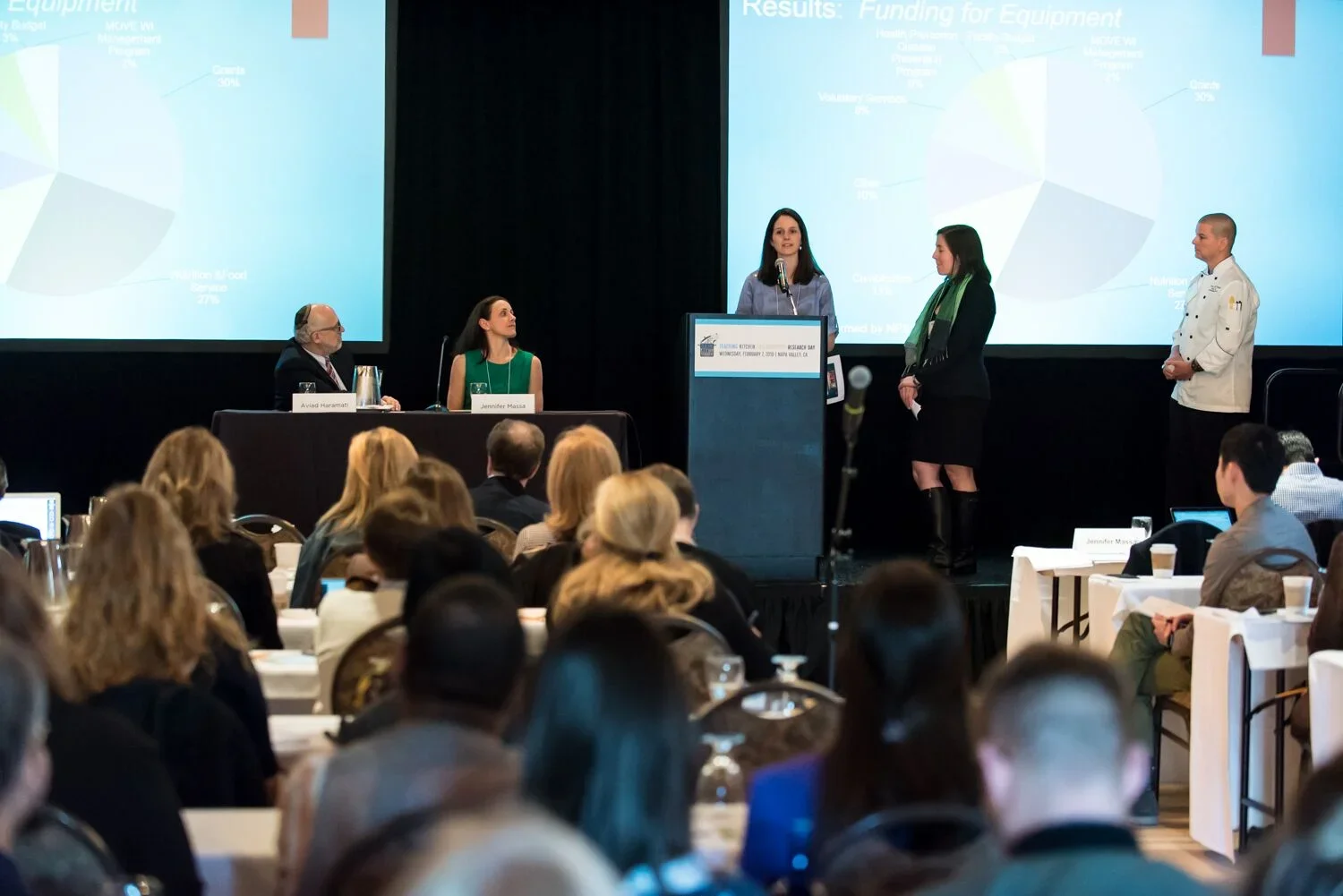
Sharing, collaborating, and co-creating were the unmistakable themes at last week’s Teaching Kitchen Collaborative Research Day, where a mix of over 100 physicians, healthcare professionals, students, and researchers gathered to learn about, and discuss experiences related to “teaching kitchens,” and their potential to impact the behaviors, health outcomes, quality of life, and costs of care for a range of populations.
Hosted by the Department of Nutrition and The Culinary Institute of America (CIA), the inaugural research conference comes at a strategic time: In the past few years, dozens of teaching kitchen programs have been built worldwide across multiple settings, with the broader intention of designing, implementing, and evaluating strategies to improve personal and societal health and wellbeing. However, until recently, many of these programs emerged on their own, with limited discussion or practice-sharing between sites.
What is a teaching kitchen?
Despite the image of chefs demonstrating knife skills that the name may evoke; culinary instruction is just one facet of teaching kitchen programming. Far beyond a cooking class, these programs are being designed more like learning labs for life skills—incorporating nutrition education, movement and exercise, mindfulness training, personalized health coaching, and more. Teaching kitchens may feature some or all of these aspects, and are used in a range of settings (universities, hospitals, corporate worksites, retirement communities, etc.).
“Collaboration is key in finding new ways to help people eat, move, and think more healthfully,” said David Eisenberg, director of culinary nutrition in the Department of Nutrition. “Models co-created by multiple teaching kitchens will be superior to those created by any individual teaching kitchen. Furthermore, no one teaching kitchen model can address all needs.”
The commitment to develop best practices, optimal research strategies, and the creation of a shared research network are founding principles of the Teaching Kitchen Collaborative (TKC), launched in 2016 by Eisenberg and colleagues at The CIA and Harvard Chan’s Department of Nutrition,* to bring together organizations with existing or planned teaching kitchens. A recent survey found that since the creation of the collaborative, over 34,000 individuals (including more than 21,500 in 2017 alone) have participated in programming across 27 TKC sites. Two years after its launch, the TKC Research Day marks the first scientific meeting to enable TKC members and researchers to present original findings on teaching kitchens and pilot data emerging from these models.
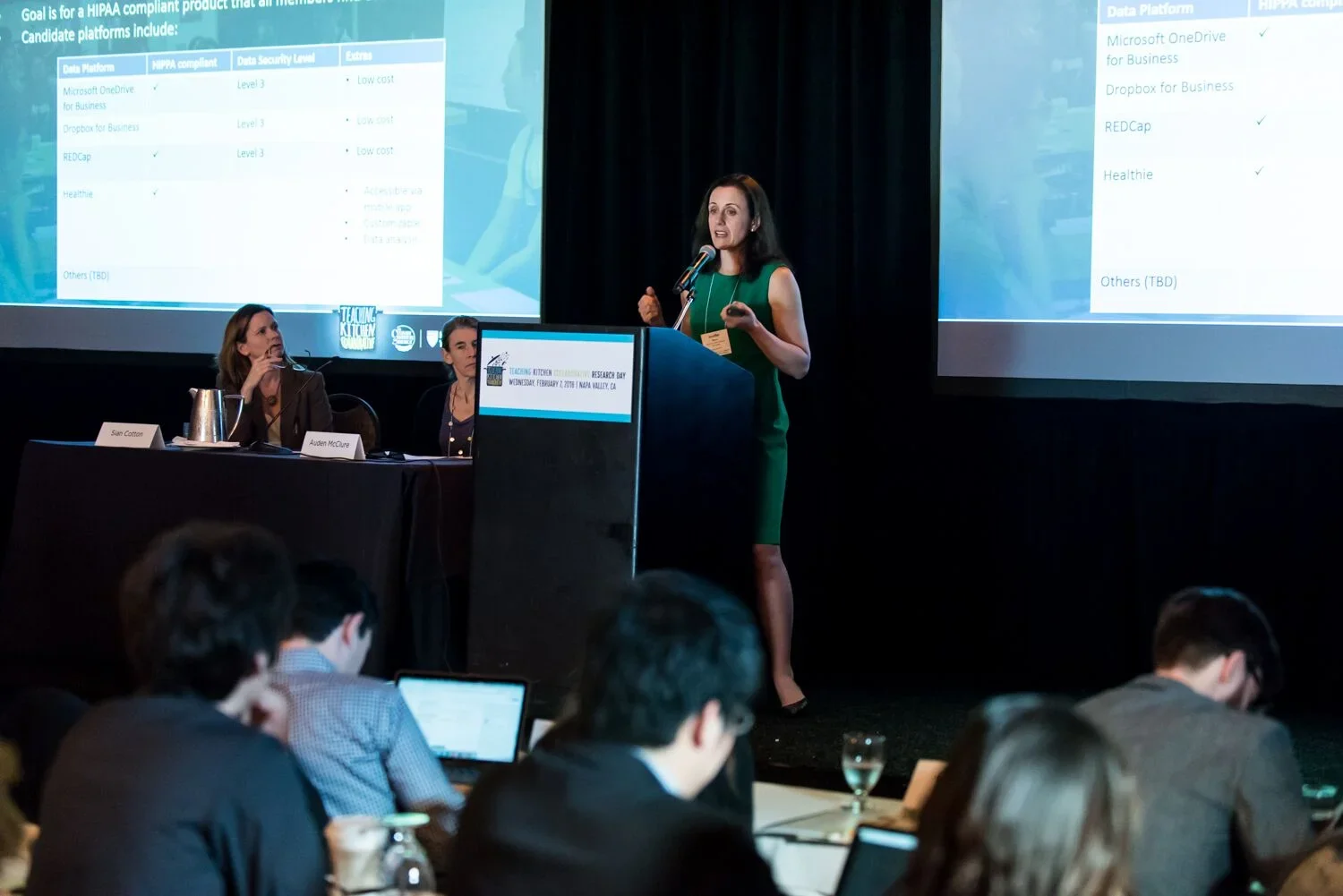
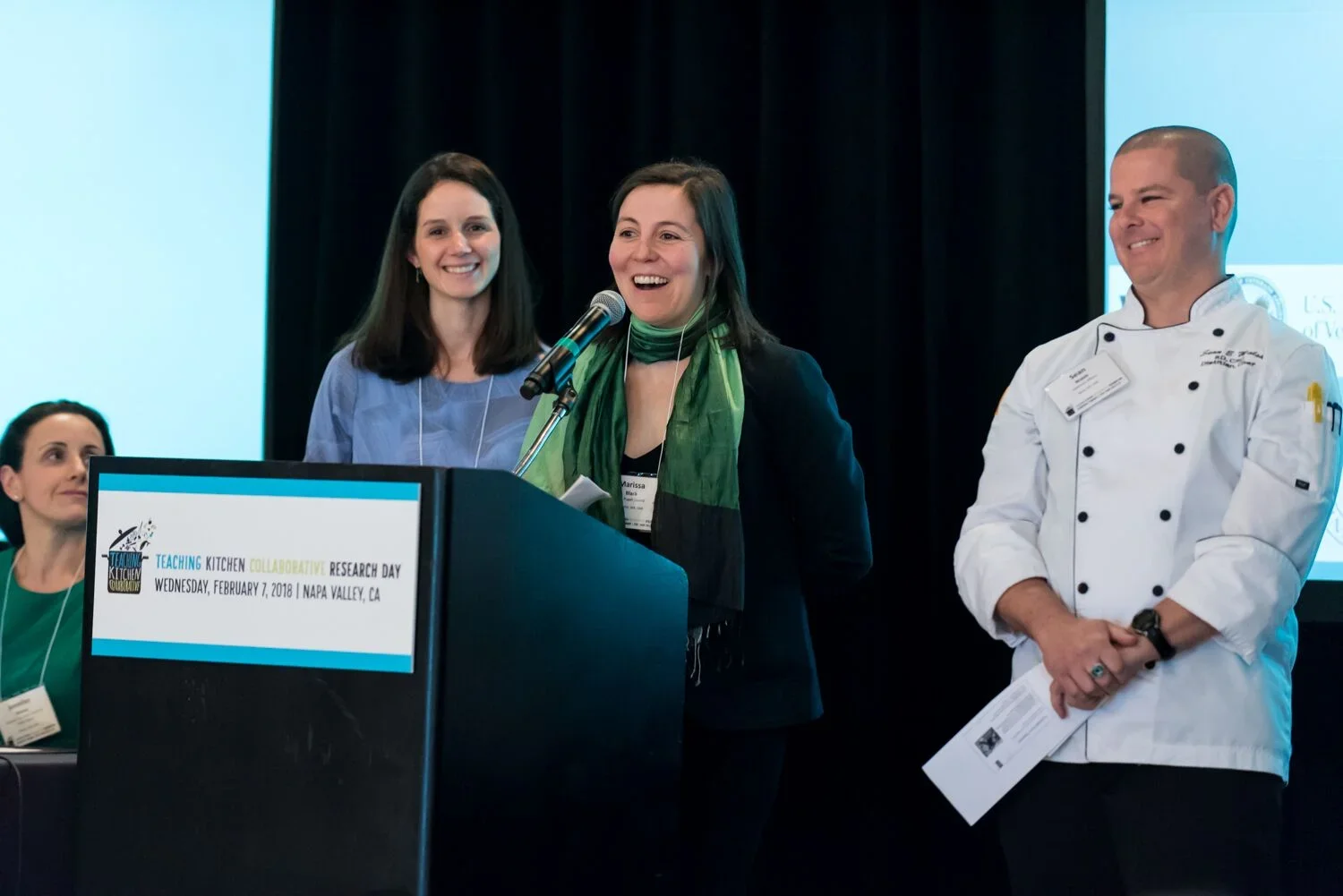
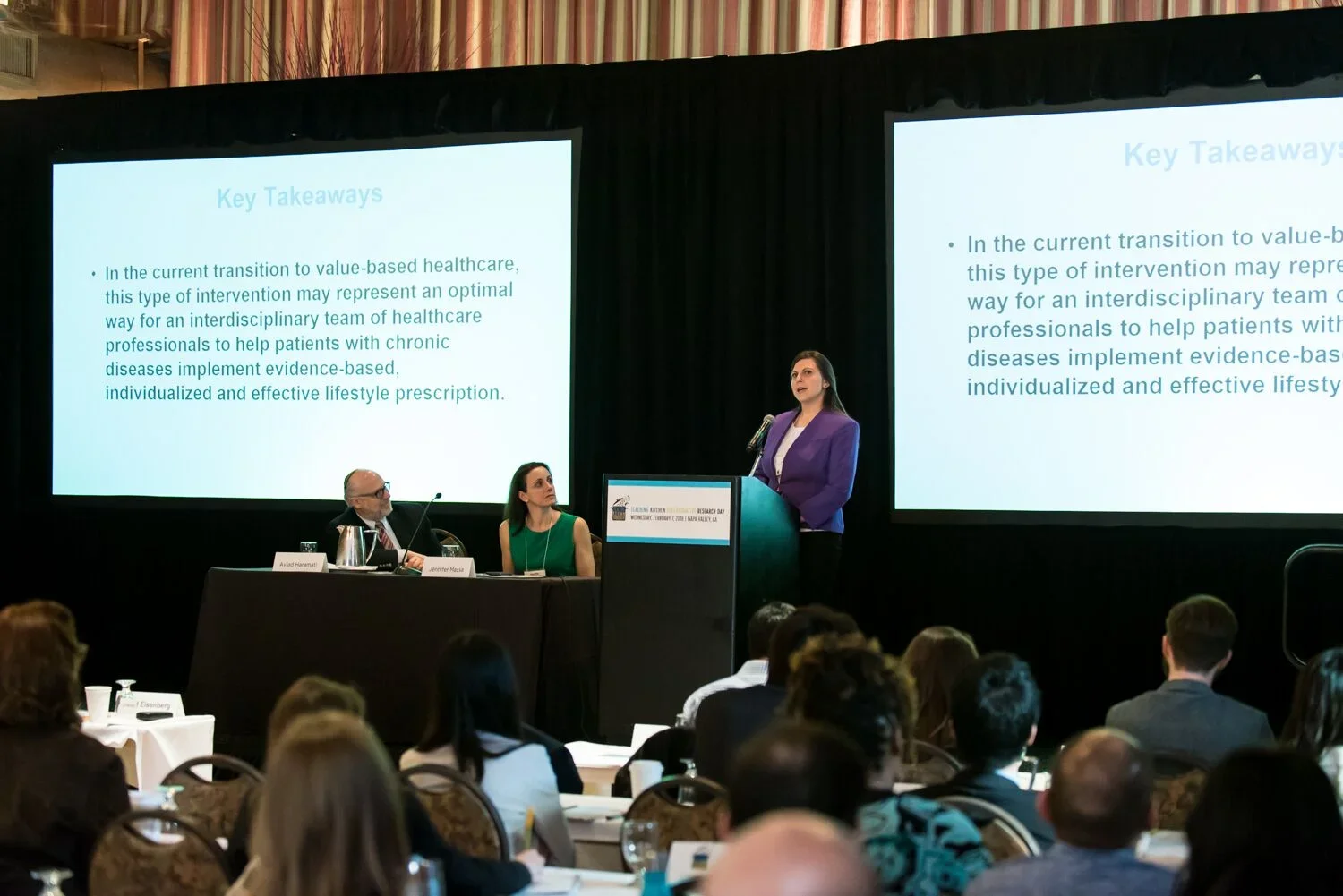
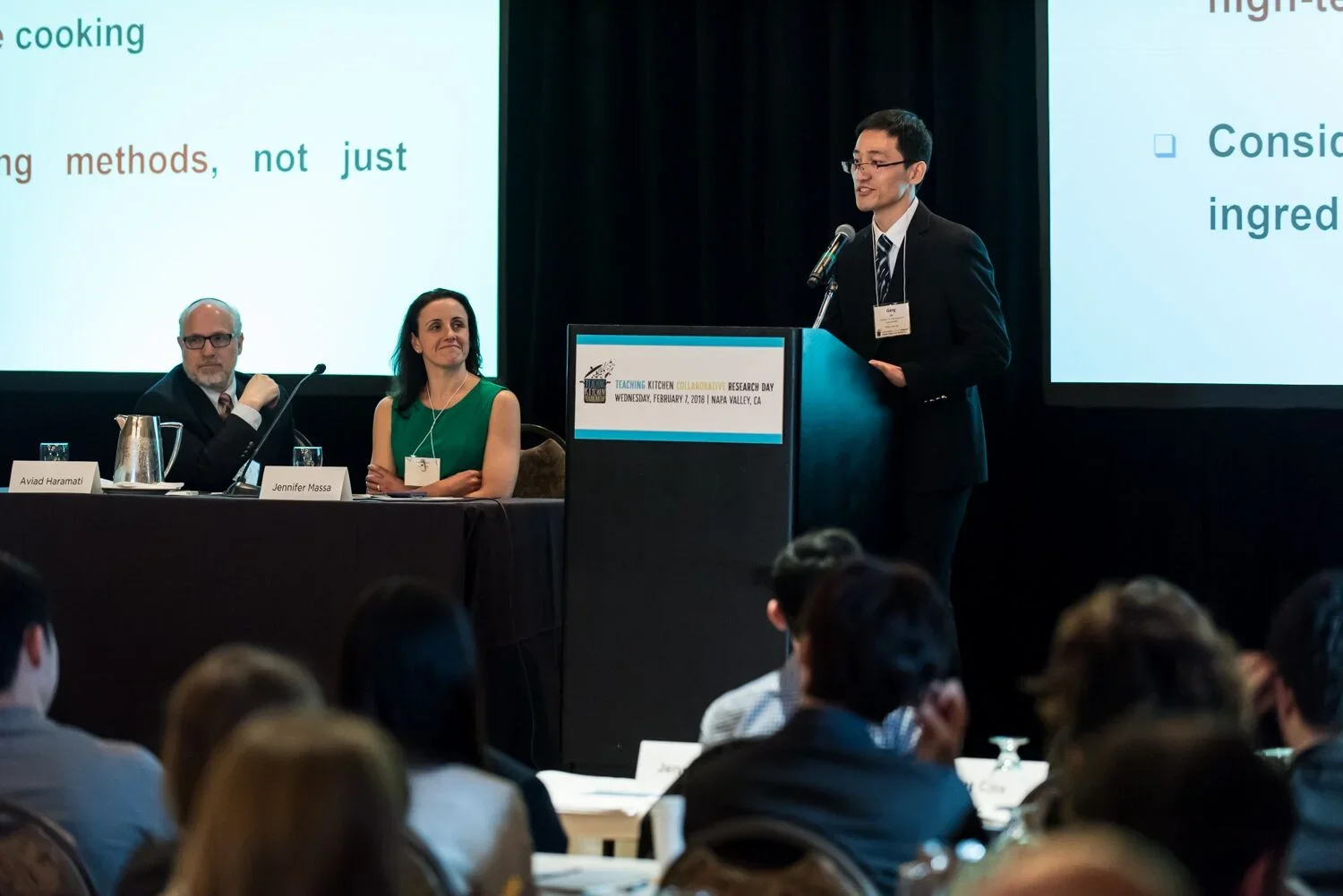
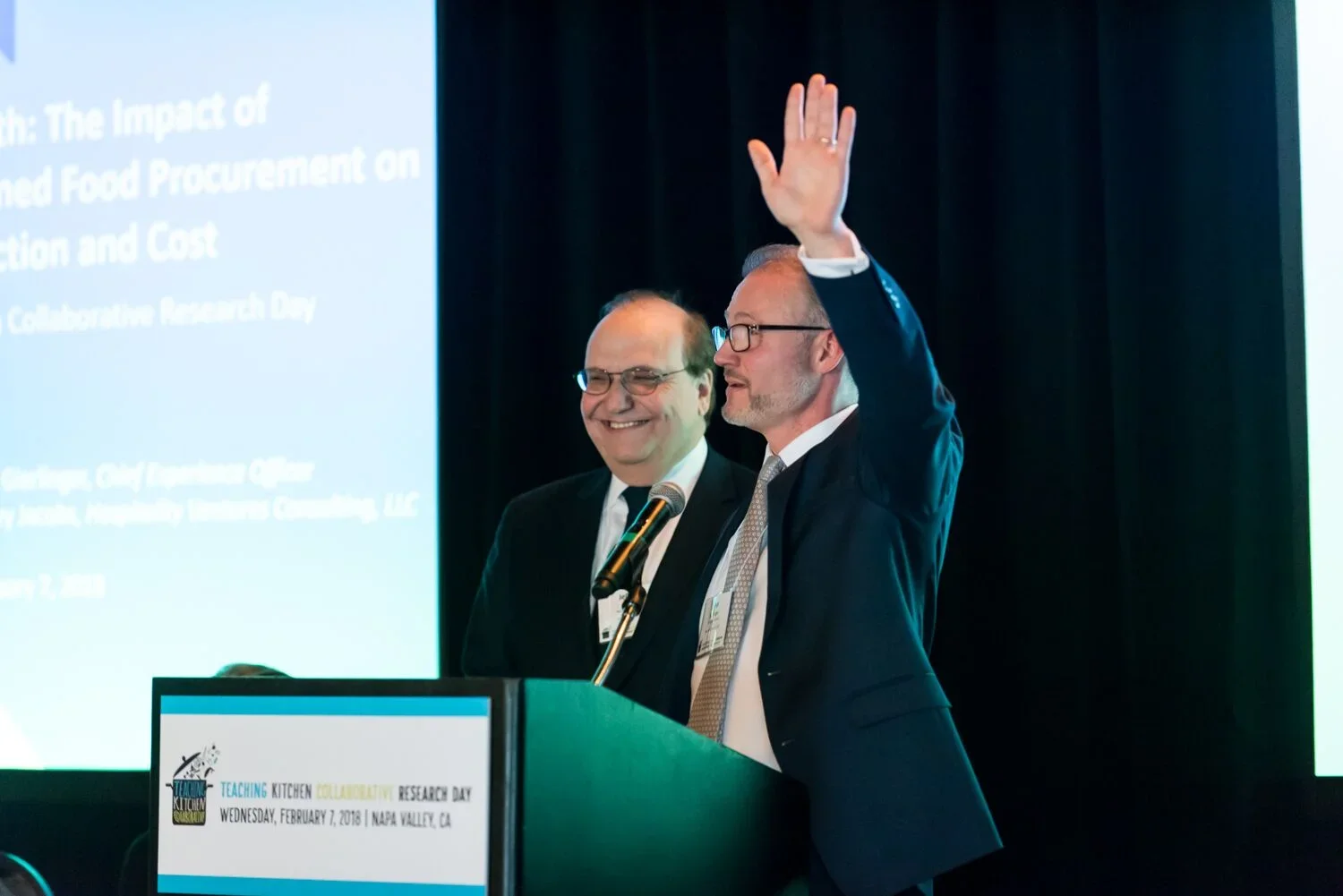
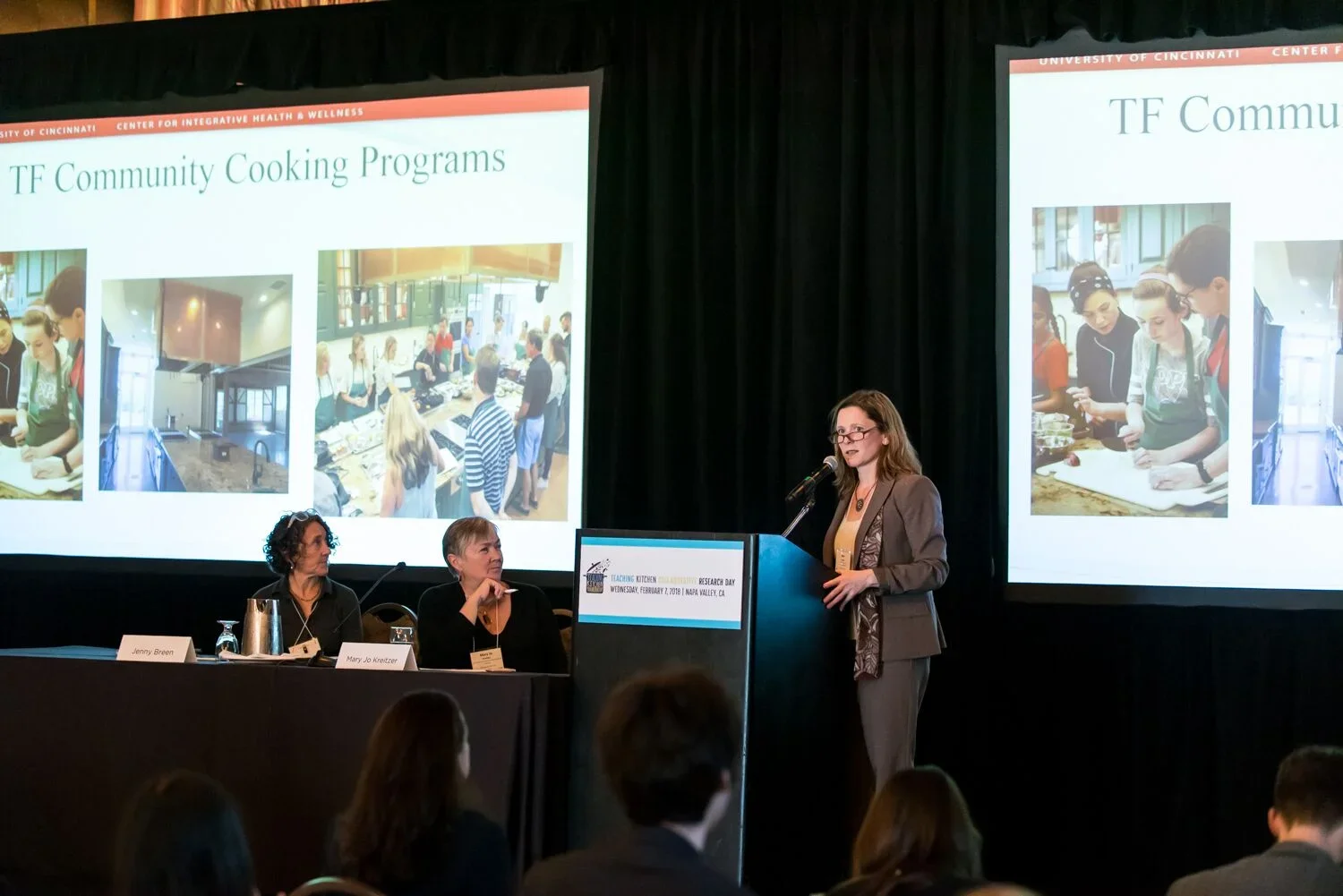
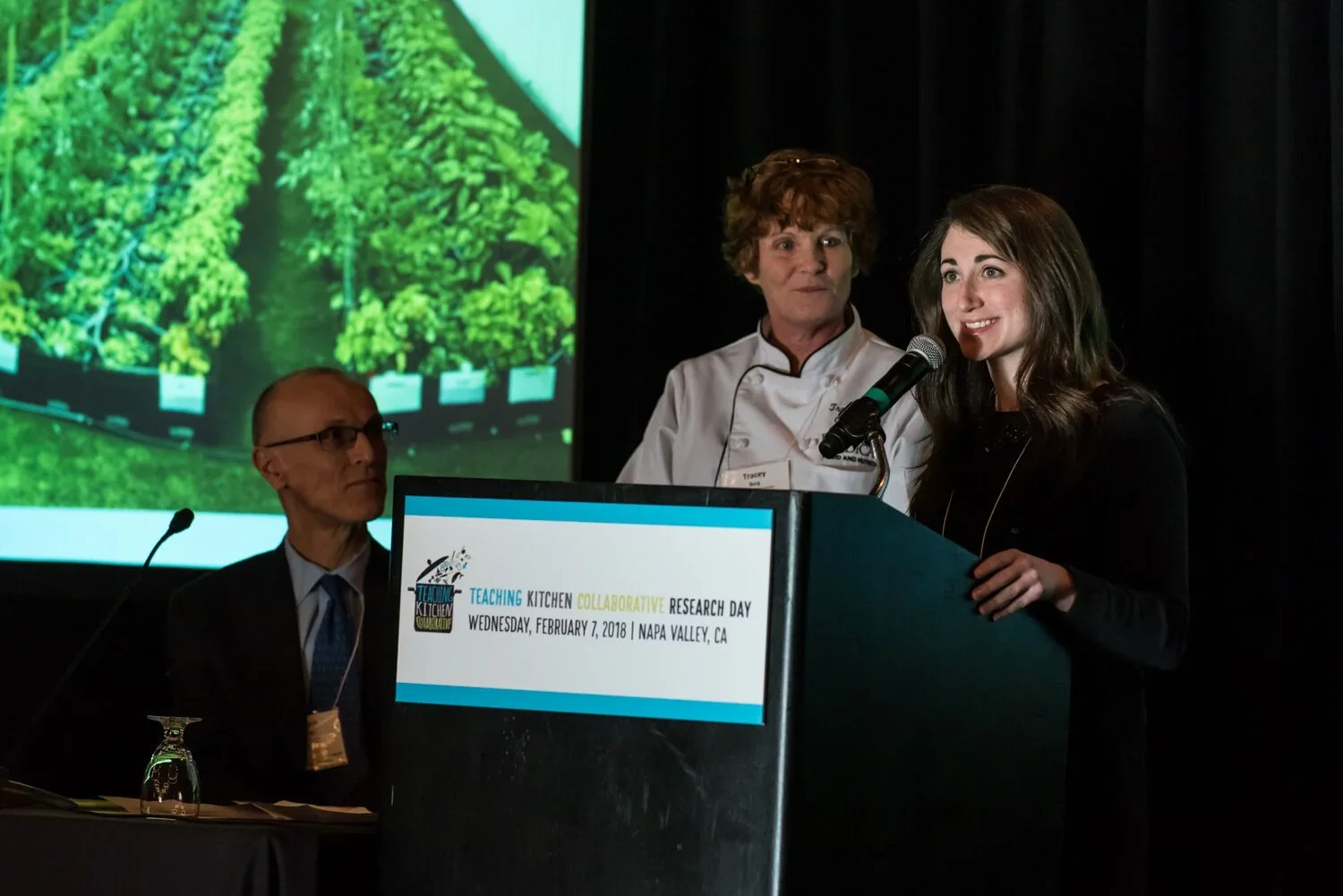
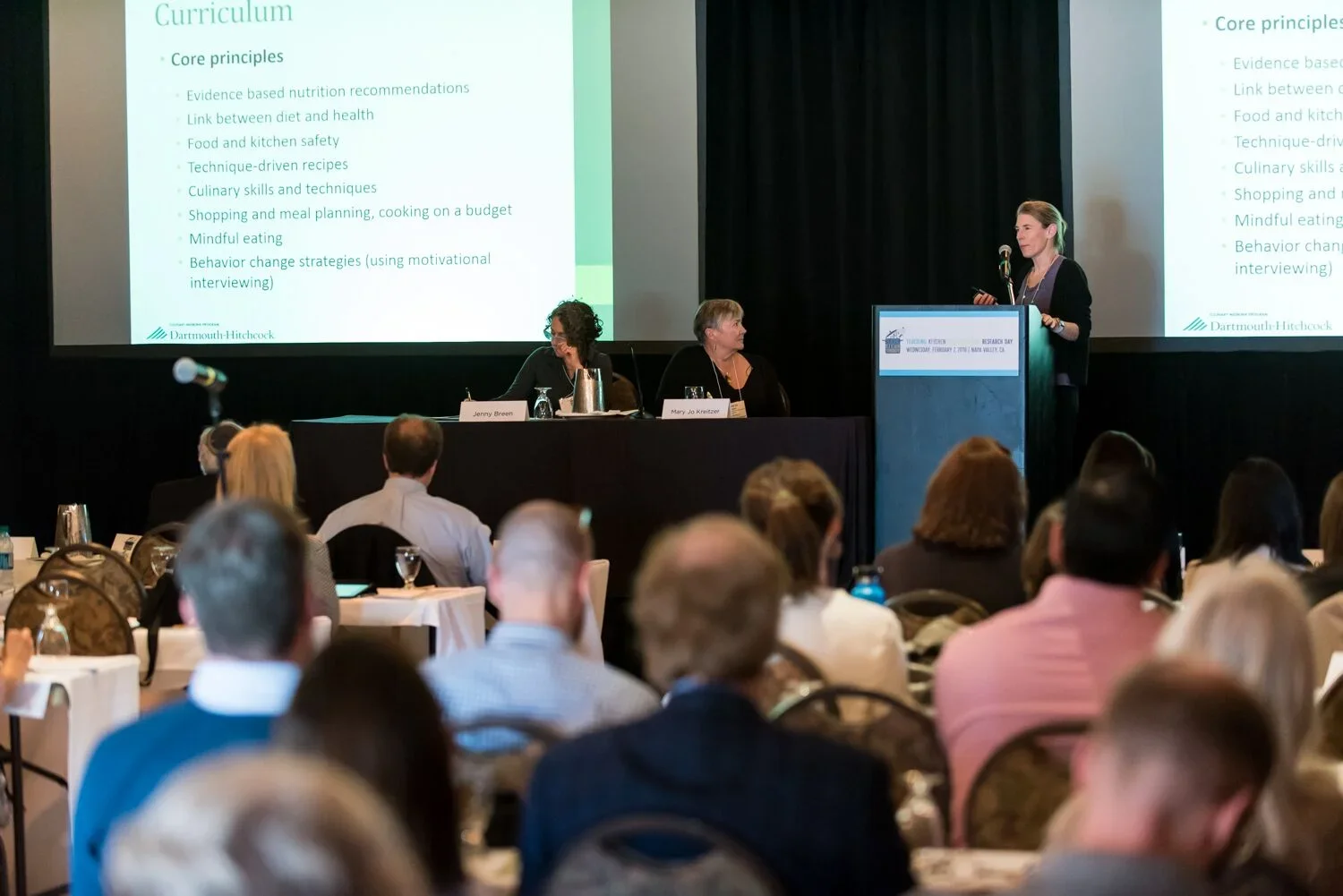
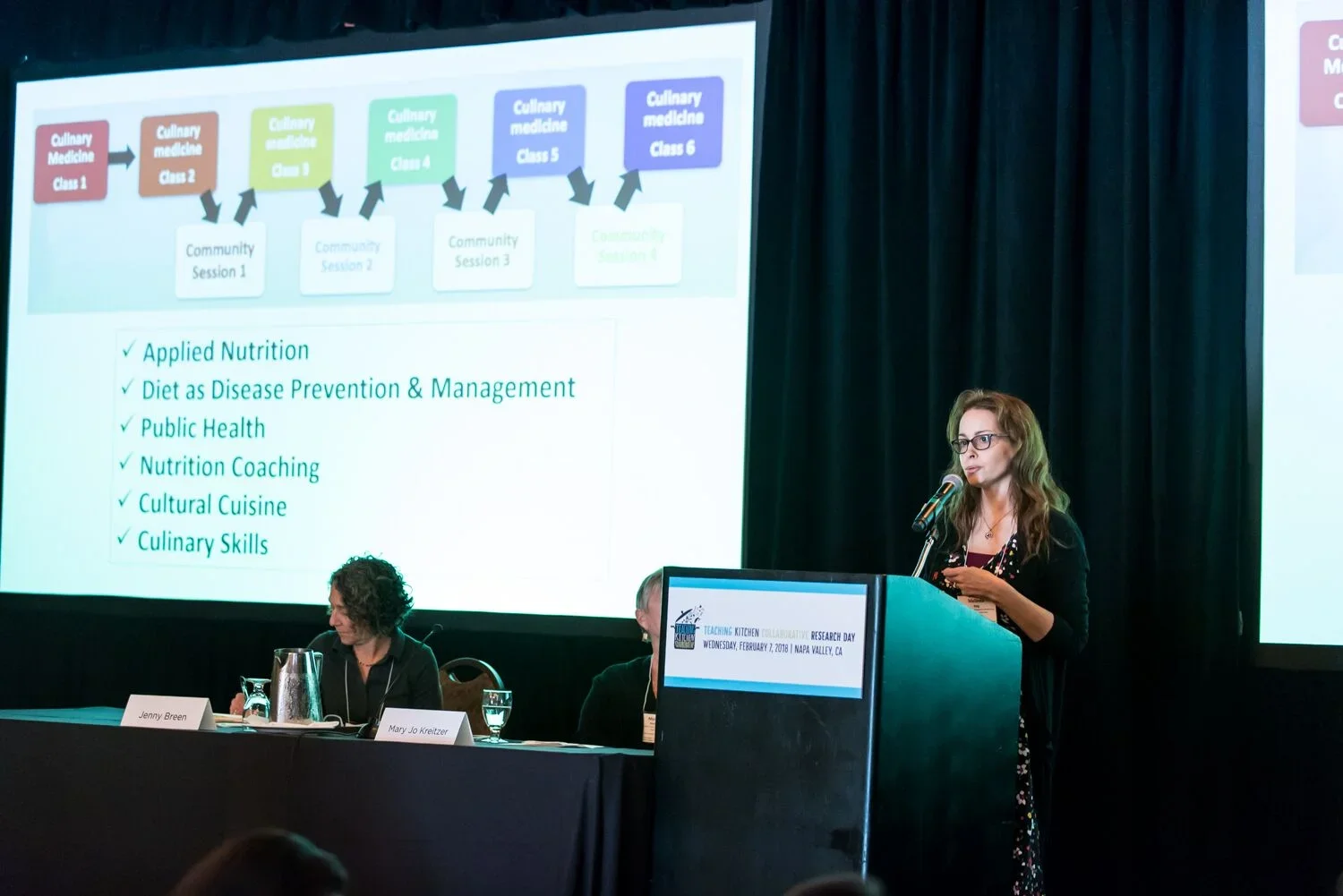
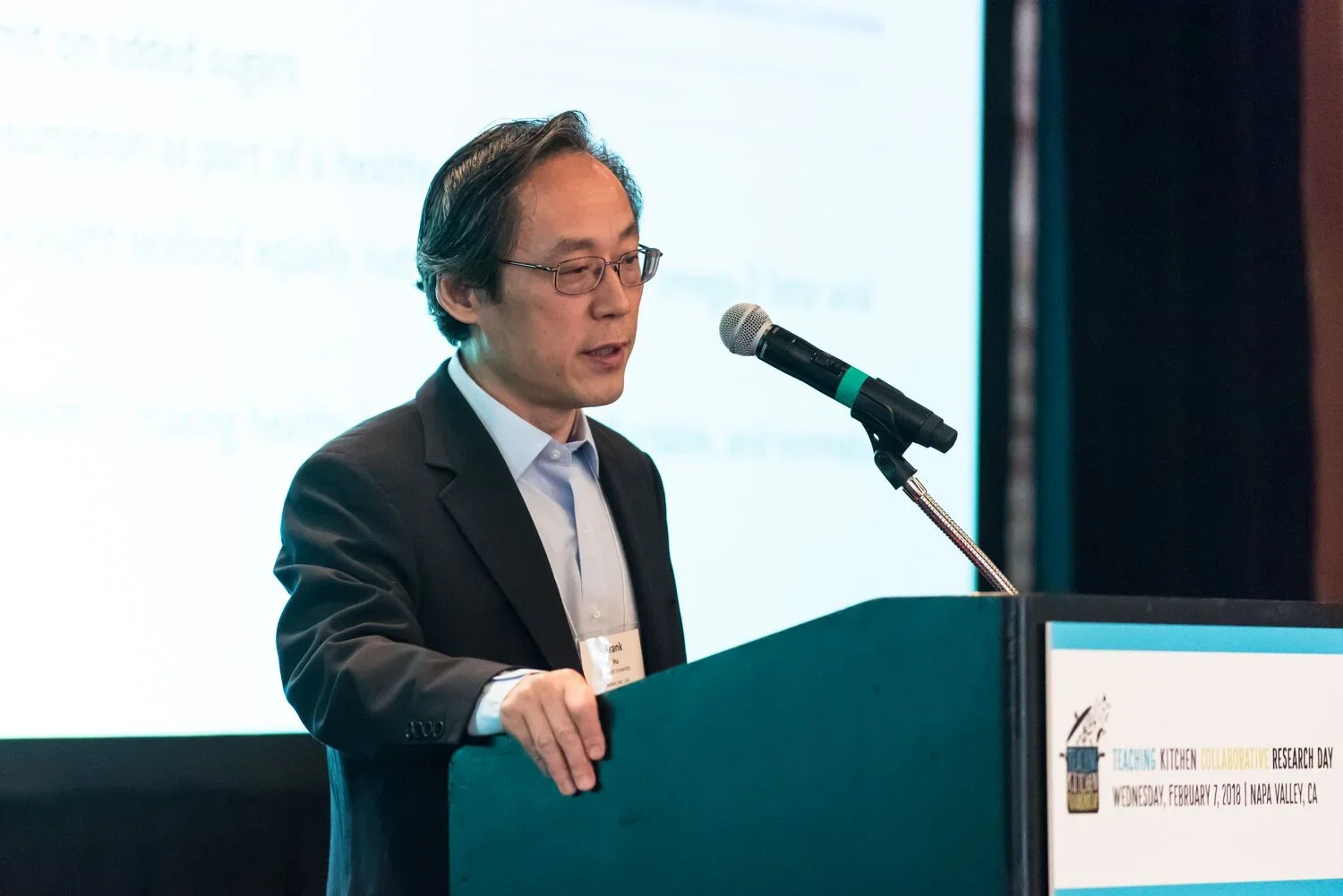
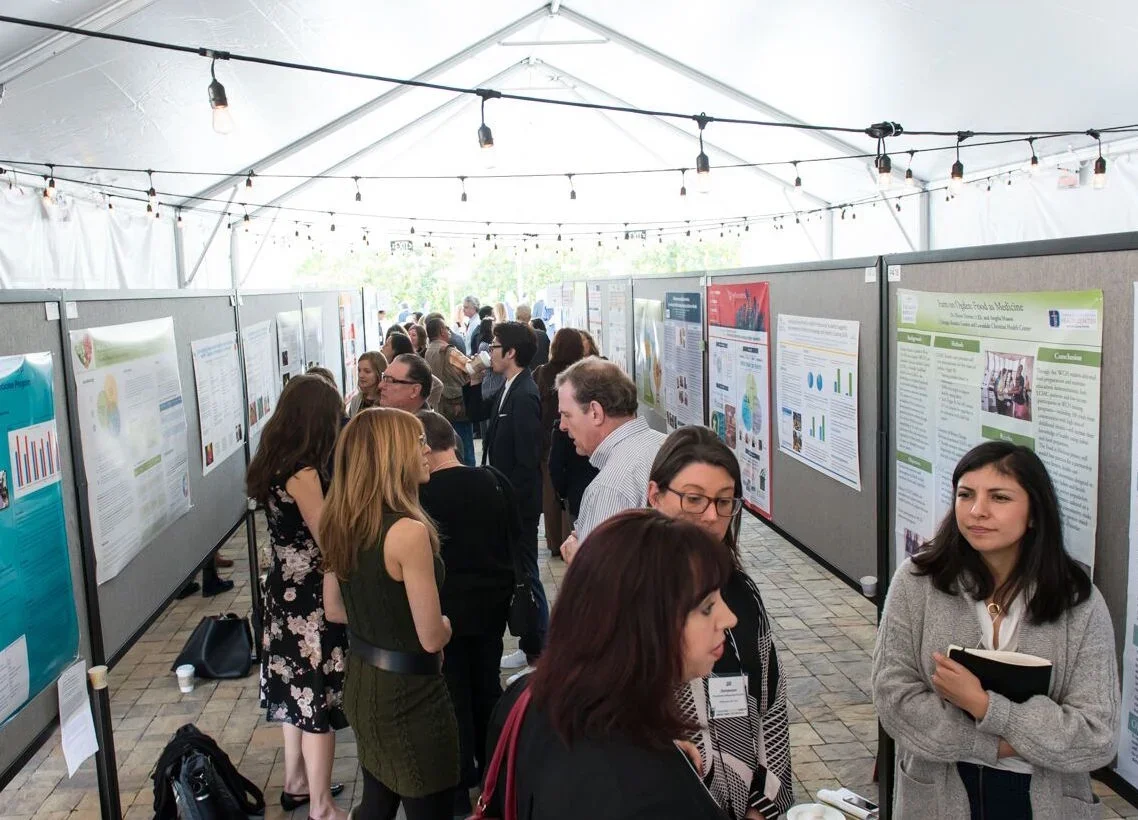
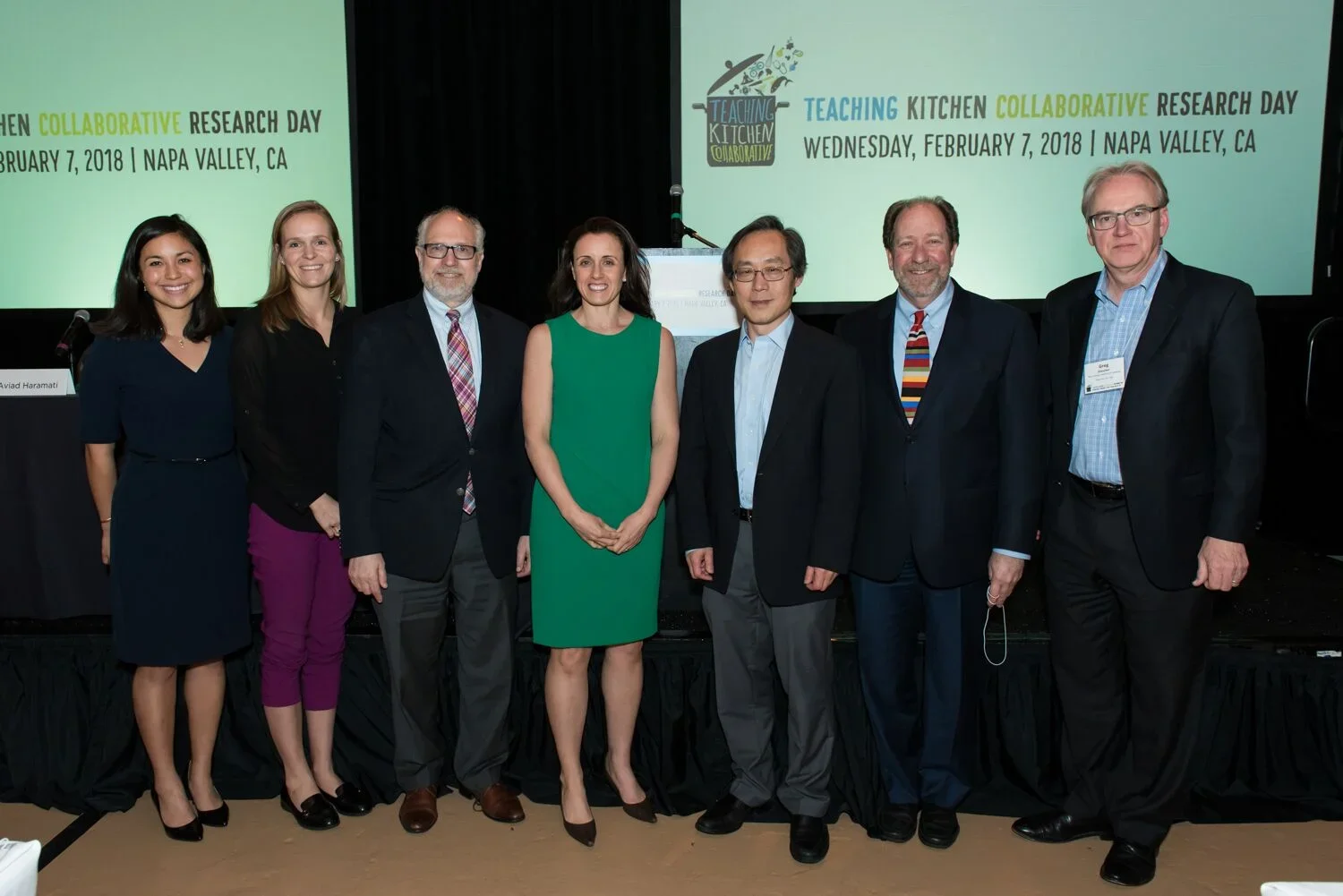
Among the wide variety of content covered by over 40 posters and nearly 20 presentations, some recurring topics emerged: the ongoing development of teaching kitchens tailored to different settings and populations (patients, employees, children, retirees, health care professionals, etc.); partnerships with local agriculture as well as experimentation with urban agriculture; increasing nutrition literacy among health professionals and trainees (including medical students); and research methodologies and strategies to assess changes in behaviors, clinical impact, and financial return on investment.
“What we’re seeing here are the early-stage garage inventions,” noted Dr. Eisenberg during the day’s presentations. “With continued tinkering and improvement, some of them may likely become innovations we can’t live without.”
Even Google, which has already established 17 teaching kitchens throughout its global offices, is continuing to develop, test, and refine. Their Director of Food, Michiel Bakker, shared lessons learned from Google’s “KitchenSync” program, which has enabled over 6,000 employees “to engage, learn, and co-create with food.” This year, Google plans to open a dozen or more new teaching kitchens.
Along with interest in how food experiences can enable individuals and teams to “be at their best” in both the short- and long-term, Bakker is also focused on the challenges and opportunities in broader food systems. He summarized this multilevel approach through five “foodshots:” enable individuals to make personal, informed food choices for sustainable lifestyles; shift diets; enhance food (systems) transparency; reduce loss and waste in food systems; and accelerate the transition to a circular food economy.
This holistic view was echoed by Frank Hu, chair of the Department of Nutrition, who noted the big-picture goal of “securing both personal and planetary health” through “nutritional sciences, global food sustainability, and nutrition translation and practice.” According to Dr. Hu, teaching kitchens can play an important role in working towards this vision:
Translating nutrition research into practical guidelines and policies is essential for improving public health. Looking forward, it will be crucial to generate evidence to clarify nutrition myths and controversial areas, evaluate nutrition policies, and support the growing fields of precision nutrition, nutrigenomics, planetary health and microbiome research. As evidence in these new areas evolves and accumulates, teaching kitchens can be used as laboratories of nutrition translational research.
Wendy Weber, Acting Deputy Director of the National Center for Complementary and Integrative Health at the National Institutes of Health (which provided grant funding to partially support the TKC Research Day), also reflected on the need for testing innovative methods to translate evidence-based research to the broader community, and reiterated that the emerging teaching kitchen models presented during the research day are well-positioned to answer this call.
Indeed, teaching kitchens are still in the relatively early stages of development. Continued cross-sector collaboration and research will be needed to pinpoint best practices for reproducing and scaling this type of programming to properly assess their potential to predictably impact behaviors (diet, exercise, cooking confidence, mindfulness, etc.), clinical outcomes, and costs of health care (i.e., return on investment). For now, as noted by Dr. Eisenberg in his final address of the day, the inaugural TKC Research Day was a significant leap in the ongoing teaching kitchen journey:
When we launched the collaborative, we imagined a day when we would come together to share what we were doing, what we were learning, and how we could make better models together than we ever could individually. Today we accomplished that; and I think everyone came to present their piece of the puzzle, and felt as though the complete picture became clearer. We all came to help build something bigger than ourselves or our organizations, and I would argue that elements of our collective futures are being created here, today.
*As of 2019, the Teaching Kitchen Collaborative is an independent entity.


